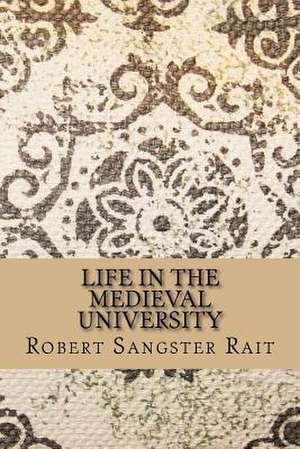Life in the Medieval University
Autor Robert Sangster Raiten Limba Engleză Paperback
Preț: 100.72 lei
Nou
Puncte Express: 151
Preț estimativ în valută:
19.28€ • 19.83$ • 15.100£
19.28€ • 19.83$ • 15.100£
Carte indisponibilă temporar
Doresc să fiu notificat când acest titlu va fi disponibil:
Se trimite...
Preluare comenzi: 021 569.72.76
Specificații
ISBN-13: 9781548293772
ISBN-10: 1548293776
Pagini: 118
Dimensiuni: 152 x 229 x 6 mm
Greutate: 0.17 kg
ISBN-10: 1548293776
Pagini: 118
Dimensiuni: 152 x 229 x 6 mm
Greutate: 0.17 kg
